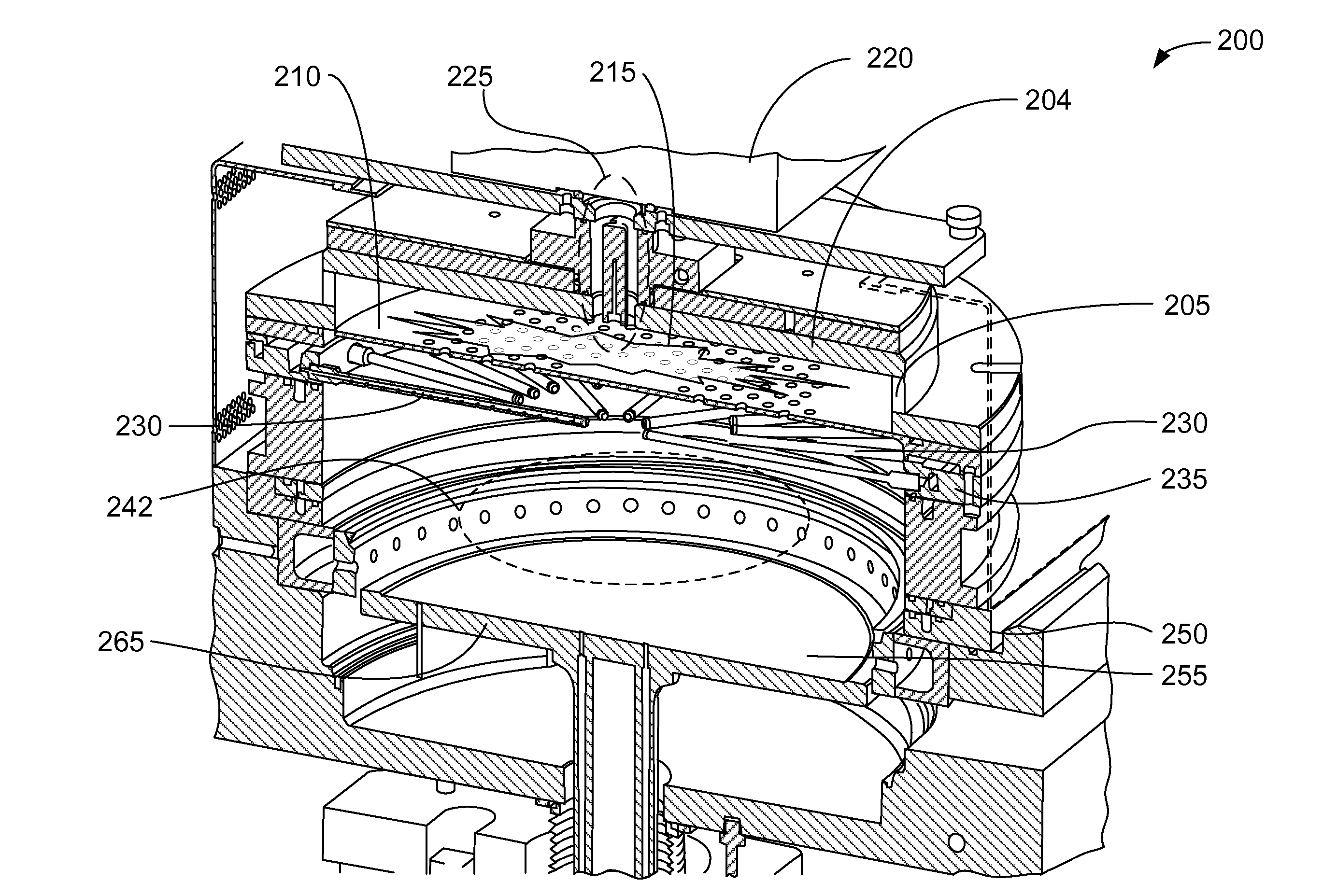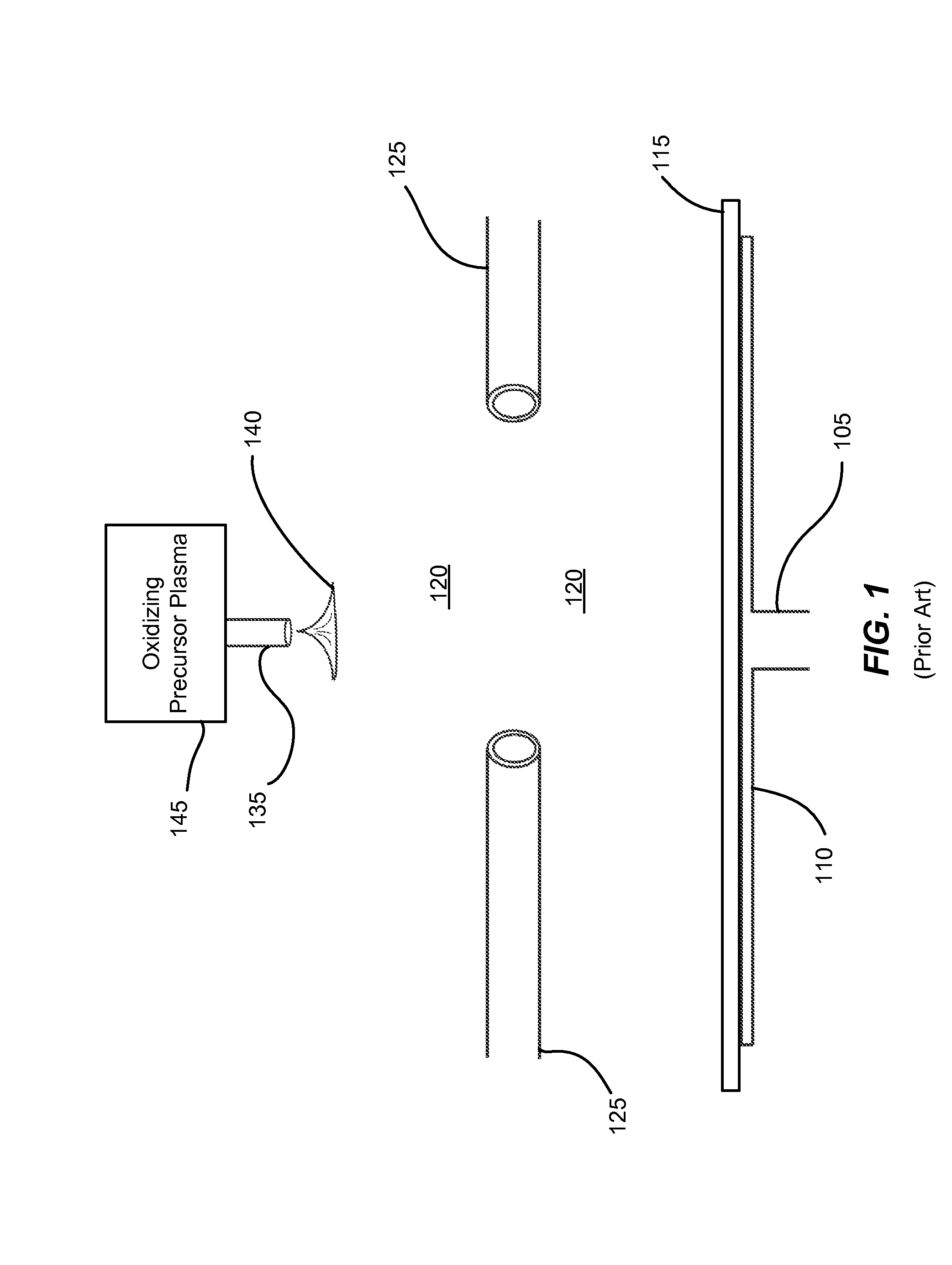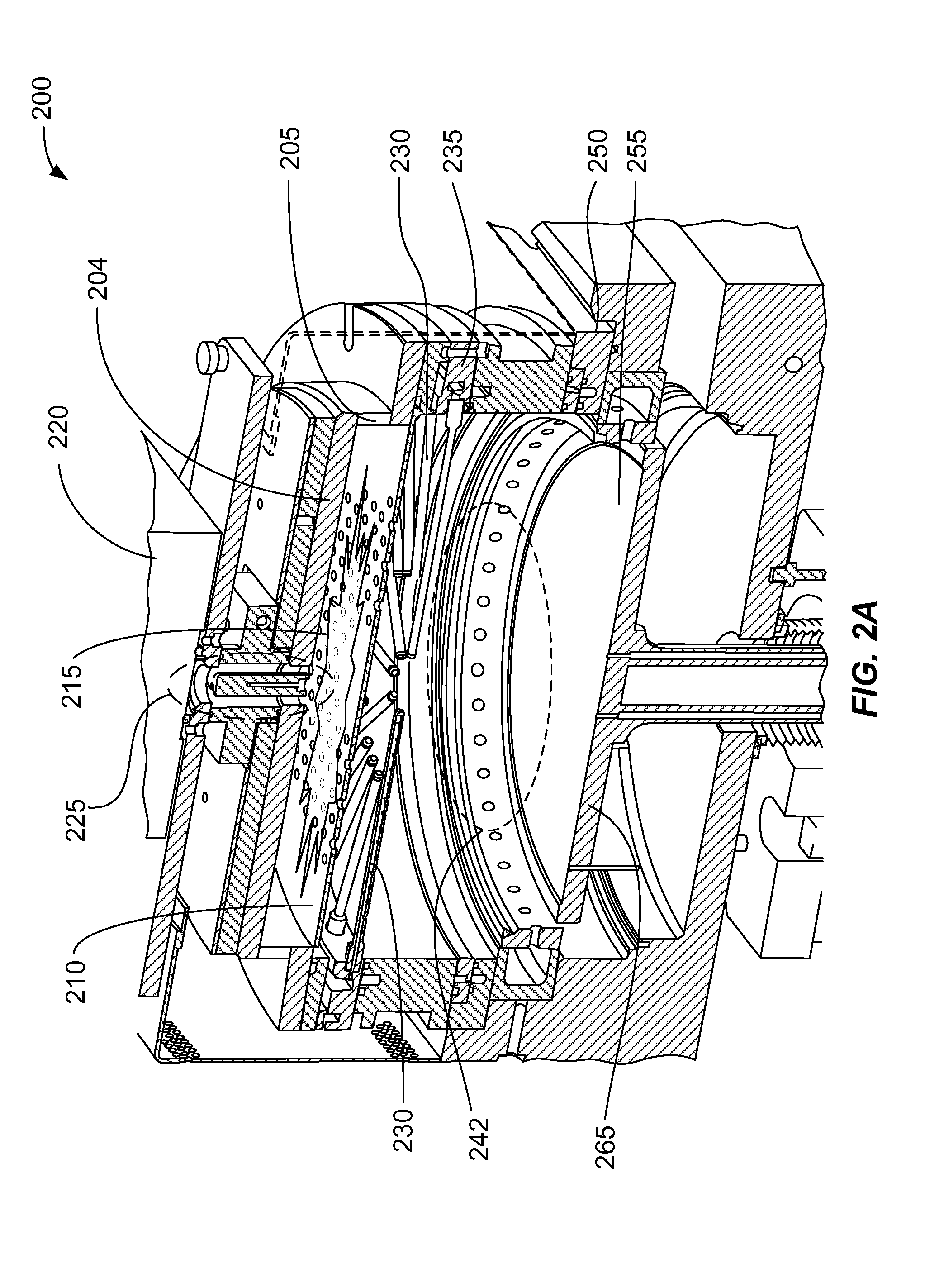Remote plasma source seasoning
a plasma source and seasoning technology, applied in the field of remote plasma source seasoning, can solve the problems of reducing the deposition rate of materials, reducing the deposition uniformity of materials, and reducing the deposition rate. , the effect of improving the deposition ra
- Summary
- Abstract
- Description
- Claims
- Application Information
AI Technical Summary
Benefits of technology
Problems solved by technology
Method used
Image
Examples
Embodiment Construction
[0021]Methods of seasoning a remote plasma system are described. The methods include the steps of flowing a silicon-containing precursor into a remote plasma region to deposit a silicon containing film on an interior surface of the remote plasma system. The methods reduce reactions with the seasoned walls during deposition processes, resulting in improved deposition rate, improved deposition uniformity and reduced defectivity during subsequent deposition.
[0022]A brief introduction to the layout and use of aspects of an exemplary substrate processing chamber will prove helpful and precede a description of the protective treatment or seasoning methods. FIGS. 2A-2C are perspective views of multi-region process chambers for use with methods described herein. A process gas containing oxygen, hydrogen and / or nitrogen (e.g. oxygen (O2), ozone (O3), N2O, NO, NO2, NH3, NxHy including N2H4, silane, disilane, TSA, DSA, . . . ) may be introduced through the gas inlet assembly 225 into chamber p...
PUM
| Property | Measurement | Unit |
|---|---|---|
| Pressure | aaaaa | aaaaa |
| Pressure | aaaaa | aaaaa |
| Deposition rate | aaaaa | aaaaa |
Abstract
Description
Claims
Application Information
 Login to View More
Login to View More - R&D
- Intellectual Property
- Life Sciences
- Materials
- Tech Scout
- Unparalleled Data Quality
- Higher Quality Content
- 60% Fewer Hallucinations
Browse by: Latest US Patents, China's latest patents, Technical Efficacy Thesaurus, Application Domain, Technology Topic, Popular Technical Reports.
© 2025 PatSnap. All rights reserved.Legal|Privacy policy|Modern Slavery Act Transparency Statement|Sitemap|About US| Contact US: help@patsnap.com



